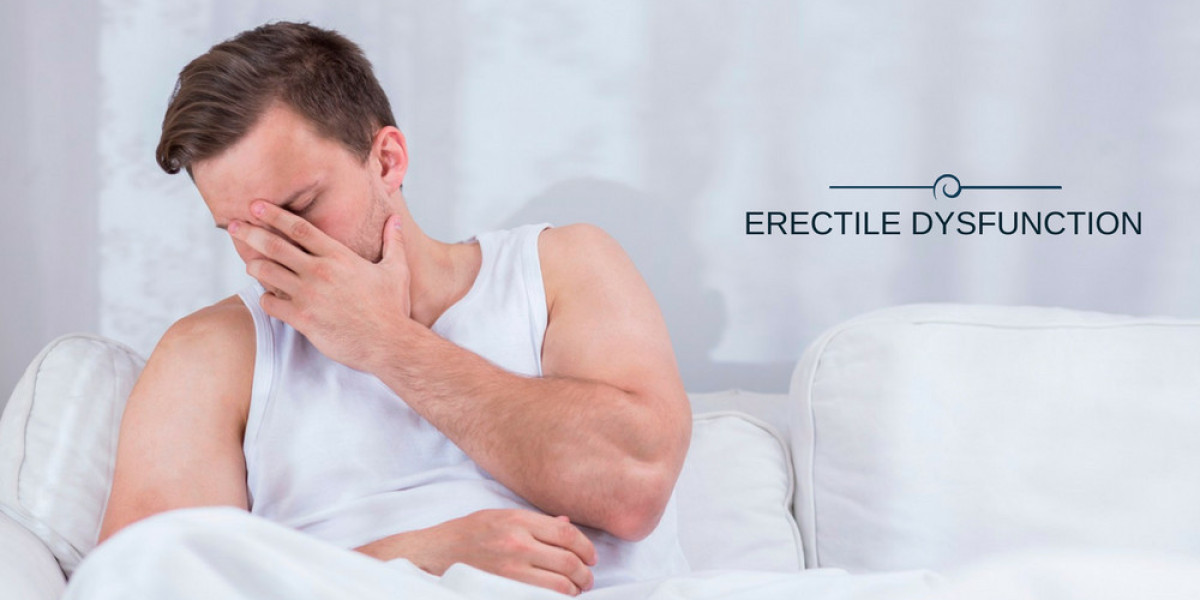Erectile Dysfunction (ED) is a condition that affects a significant portion of the male population, with various contributing factors including psychological, vascular, and hormonal issues. Among the hormonal factors, testosterone plays a crucial role in the pathogenesis of ED. For those seeking comprehensive care for ED, Erectile Dysfunction Treatment in Islamabad offers tailored solutions and advanced treatments.
Testosterone is a primary male sex hormone produced mainly in the testes, and it is essential for the development and maintenance of male sexual characteristics. It influences libido, sexual performance, and overall sexual health. Low levels of testosterone, known as hypogonadism, are often associated with various sexual dysfunctions, including ED. The relationship between testosterone and erectile function is complex, involving several physiological processes.
1. Testosterone and Sexual Desire
One of the primary roles of testosterone is to regulate sexual desire. Adequate levels of this hormone are crucial for maintaining a healthy libido. Testosterone affects the brain's hypothalamus, which is responsible for the regulation of sexual arousal. Low testosterone levels can lead to reduced sexual desire, which in turn can contribute to difficulties in achieving and maintaining an erection. Men with low testosterone levels often report a decreased interest in sexual activity, which can exacerbate the symptoms of ED.
2. Testosterone and Penile Blood Flow
Testosterone also plays a role in modulating penile blood flow. The physiological mechanism of erection involves a complex interaction between the nervous system and blood vessels. Testosterone influences the production of nitric oxide, a molecule that relaxes the smooth muscles of the blood vessels in the penis, allowing for increased blood flow and subsequent erection. Low testosterone levels can impair this process, leading to difficulties in achieving or sustaining an erection.
3. Testosterone and Muscle Mass
Another indirect way testosterone affects erectile function is through its impact on muscle mass. Testosterone helps in maintaining muscle mass and strength. Adequate muscle tone, particularly in the pelvic region, is essential for supporting erectile function. Men with low testosterone levels often experience reduced muscle mass, which can impact the overall health and function of the pelvic region, contributing to ED.
4. Testosterone and Psychological Well-being
Testosterone levels also have a significant impact on psychological well-being. Low testosterone can contribute to mood disorders such as depression and anxiety, which are known to be risk factors for ED. Psychological factors can significantly influence sexual performance and satisfaction. Therefore, addressing hormonal imbalances can often improve both mood and sexual function.
5. Treatment Approaches
When it comes to treating ED associated with low testosterone levels, a multi-faceted approach is often required. Hormone replacement therapy (HRT) is commonly used to address testosterone deficiency. This treatment can help restore normal testosterone levels, improve libido, and enhance overall erectile function. In addition to hormonal treatments, lifestyle changes such as regular exercise, a balanced diet, and stress management are important in improving sexual health.
For those experiencing symptoms of ED, consulting with healthcare professionals specializing in Erectile Dysfunction Treatment in Islamabad can provide access to advanced diagnostic tools and personalized treatment plans. These experts can help determine whether low testosterone is a contributing factor and recommend appropriate interventions.
6. Conclusion
Understanding the role of testosterone in the pathogenesis of ED is essential for developing effective treatment strategies. Testosterone influences various physiological and psychological aspects that are critical for maintaining erectile function. By addressing hormonal imbalances through tailored treatments and lifestyle modifications, many men can experience significant improvements in their sexual health.
For comprehensive care and advanced treatment options, Royal Cosmetic Surgery Clinic PK offers expert consultations and personalized treatment plans for Erectile Dysfunction. Their team is dedicated to helping patients achieve optimal sexual health and overall well-being.








